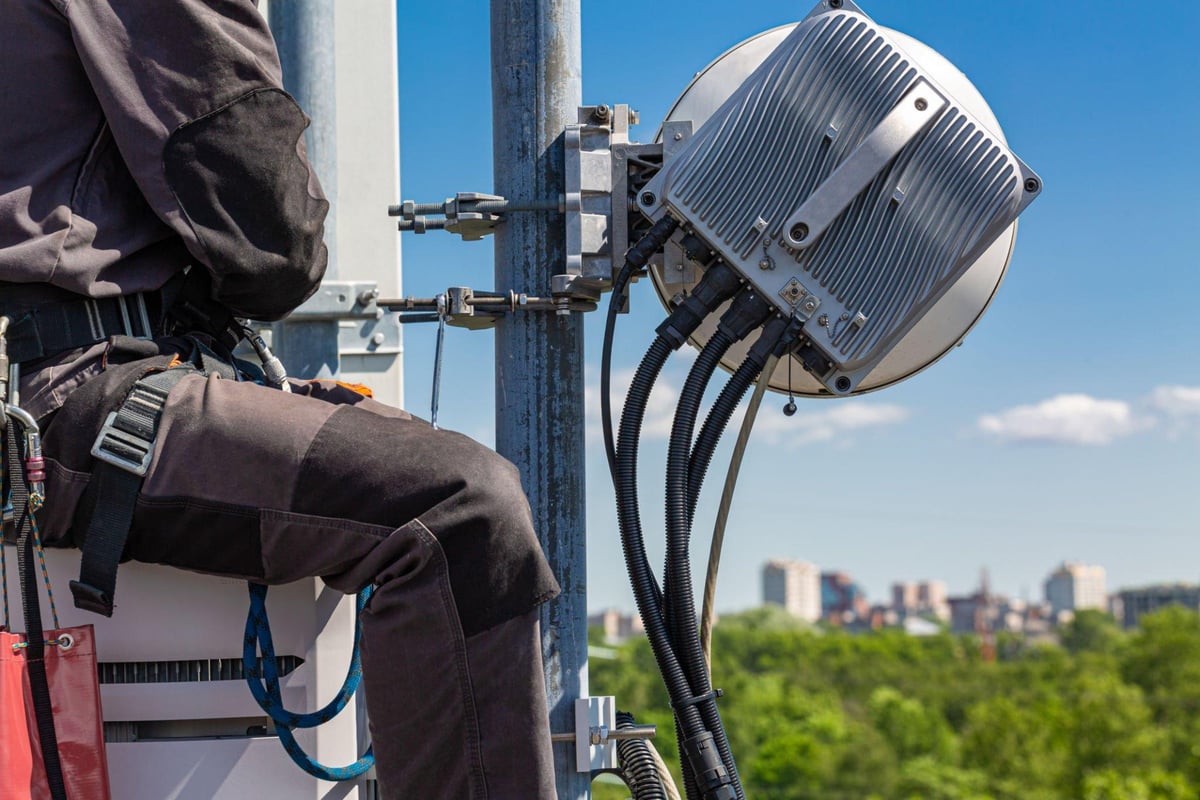
Financial aid (may be available)

Financial aid (may be available)

Financial aid (may be available)

Financial aid (may be available)
Making the decision to pursue a career as a Tower Technician can be a game-changer. For those interested in telecommunications and technology, it can be an exciting and rewarding career choice. This post will guide you through what a Tower Technician is, the training requirements, what to look for in a class, and how to find related jobs. It also provides insights on what to expect from the day-to-day class, the certification process, and what other classes someone can take after becoming a Tower Technician.

A Tower Technician, also known as a Tower Climber, is a specialist who maintains and repairs communication and broadcast tower equipment. They play a crucial role in ensuring that cellular networks, television broadcasts, and radio signals are functioning optimally. This involves climbing tall structures, diagnosing problems, and performing necessary repairs or replacements. It's a physically demanding job that requires a high degree of technical skills and the ability to work at height safely.
Becoming a Tower Technician requires specific training to gain the necessary skills and knowledge. This training is usually offered by vocational training schools and covers key areas such as:
Safety practices: This includes learning how to work safely at heights, use personal protective equipment, and follow industry-specific safety regulations.
Technical skills: Students learn how to install, maintain, and repair tower equipment. This includes understanding how to read blueprints and schematics, use tools, and troubleshoot problems.
Physical fitness: Tower Technicians must be physically fit to climb towers and handle equipment. Training often includes physical conditioning to prepare students for the demands of the job.
When searching for a Tower Technician class, there are several factors to consider:
Accreditation: Ensure the program is accredited by a recognized body. This guarantees that the course content meets industry standards.
Experienced instructors: Look for instructors who have real-world experience in the field.
Hands-on training: The class should offer practical training opportunities to apply the skills learned in a real-world setting.
The day-to-day structure of a Tower Technician class varies depending on the program. However, you can generally expect:
Theory lessons: These cover the basics of telecommunications, safety regulations, and the principles of equipment operation.
Practical sessions: These involve climbing practice, equipment handling, and repair exercises.
After completing the training program, you'll need to pass a certification exam. This test usually covers topics such as safety practices, technical knowledge, and equipment handling. Upon passing the exam, you'll receive a certificate that proves your competency as a Tower Technician.
Finding related jobs as a Tower Technician can be facilitated by networking with professionals in the field, attending job fairs, and using job search platforms. Additionally, some training programs offer job placement services to help graduates find employment.
After becoming a Tower Technician, you may consider furthering your skills and knowledge in the field. Some potential classes include:
Advanced Safety Training: This offers more in-depth knowledge on safety procedures and regulations.
Equipment Specific Training: These classes focus on specific types of equipment, allowing you to specialize in a particular area.
Supervisor Training: This prepares you for leadership roles in the field.
Beyond the basic training and job search, there are other topics related to being a Tower Technician worth exploring:
Industry Trends: Keeping up with the latest trends in telecommunications technology can help you stay competitive in the field.
Ongoing Education: Regularly updating your skills and knowledge can open up more job opportunities and increase your earning potential.
Networking: Building relationships with other professionals in the field can lead to job opportunities and provide valuable support and advice.
Pursuing a career as a Tower Technician can be a promising path for those interested in telecommunications. With the right training and dedication, you can enjoy a rewarding career in this field.
If you're exploring options in this field in various locations, Dreambound's extensive guides are a great resource. We've got detailed insights for numerous cities. check out some additional guides below:
Exploring different career paths? Dreambound offers in-depth guides to assist you in making well-informed decisions. Explore some of these resources below:
Dreambound's platform allows prospective students to find the right educational program for them through searching, filtering, and connecting with our extensive selection of career & technical education partners.
Dreambound has over 70 programs across healthcare, technology, business, and industrial trades. This includes programs such as Medical Billing, Cybersecurity, and welding.
Some of our schools offer financial aid for those who qualify. Many others offer payment plans, where you can pay the cost of class over time.
Yes, Dreambound offers many online programs. On Dreambound's search, you can filter by online, in-person, and hybrid (part online, part in-person).
Dreambound is completely free for you to use! We are supported by schools and organizations who pay to advertise on our website, so we can offer all of our career resources for free.